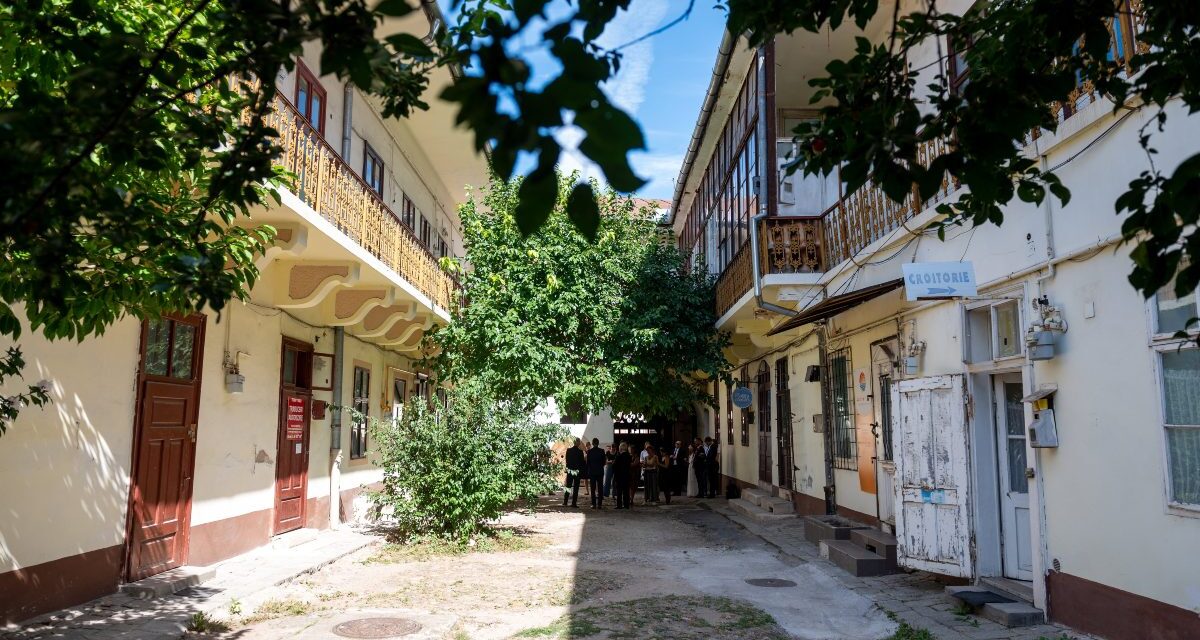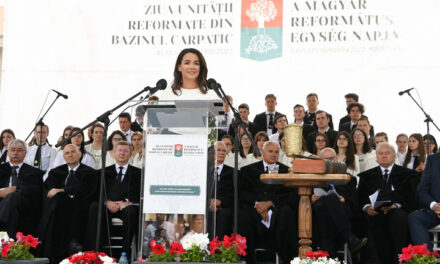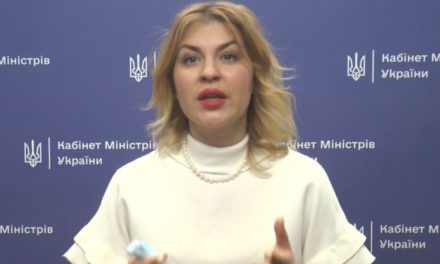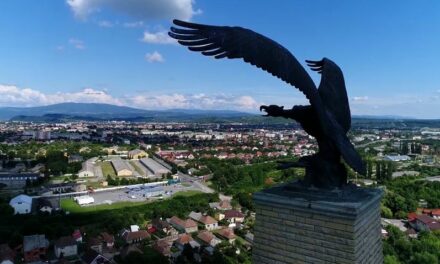Sapientia Transylvanian Hungarian University receives seven million lei from the Hungarian government
The Ministry of Culture and Innovation of Hungary is financing the renovation of the newly purchased building of the Cluj-Napoca Faculty of the Sapientia Transylvanian Hungarian University on Jókai Street, the institution's leaders and Minister Balázs Hankó announced on Friday.
The Sapientia Transylvanian Hungarian University in Cluj-Napoca has added another property, so in addition to the university building on Tordai út, Melody Szálló and Bocskai-ház, the building at 5 Jókai utca now belongs to them. Within the framework of the Hungarian Days in Cluj, Balázs Hankó, the minister responsible for culture and innovation, Márton Tonk, the rector of the Sapientia Transylvanian Hungarian University, and Béla Kató, the president of the Sapientia Foundation, solemnly announced that the Hungarian government will provide approximately 7.07 million lei for the renovation of the building.
The facade of the property has already been tidied up, but further thorough renovation is required, part of which will be covered by the grant.
According to Balázs Hankó, this amount will arrive in two installments and is expected already at the beginning of autumn.
The 2,000-square-meter property currently houses, among other things, the new office of the Hungarian Student Union in Cluj-Napoca, and according to the plans, it will provide space for more young Hungarians, as it will include vocational colleges and apartments for guest teachers, including professors participating in the Makovecz Program.
"Our task, our mission, is to ensure that Hungarian youth in the Carpathian Basin are both competitive and preserve our Hungarian identity"
Balázs Hankó emphasized at the press conference held in the courtyard of the property at 5 Jókai (Napoca in Romanian) Street.
He thanked the representatives of the Sapientia Foundation and the university for doing "value-retaining, value-preserving and value-creating" work that simultaneously pays attention to competitiveness and preserving identity. He emphasized: the goal is for the young Hungarians of the Carpathian Basin to become excellent Hungarians, because they ensure the future for many hundreds and thousands of years to come, and for this they must be strengthened in their homeland.
Transylvanian Reformed bishop Béla Kató, president of the Sapientia Foundation, pointed out that the Hungarians of Cluj-Napoca and Transylvania can only survive in their institutions.
"So we need such islands, territories, castles (...) where we can be ourselves".
He recalled that, unlike Marosvásárhely, the university could not establish a university campus in one place in Cluj, so it bought several properties in the city center. He underlined: the Hungarian community is "at home" in these, together with those who speak the same language and represent the culture.
"We are also building a parallel society, which, however, is not a closed ghetto, but every building has a gate, including this one. You can walk in and out of it"
said the bishop.
He underlined:
contrary to the frequent accusation, "Budapest politics does not want to buy, influence, control" the lives of Transylvanian Hungarians, but the Transylvanian Hungarian community has goals, plans, and programs, and for this it is asking for the support of the Hungarian government.
Márton Tonk, rector of Sapientia EMTE, said: the property was purchased by the Sapientia Foundation in 2021 with the support of the Hungarian government, and the main facade was renovated and repaired on its own.
Maszol / MTI
Featured image: the Sapientia Transylvanian Hungarian University (EMTE) in Cluj at 5 Jókai (Napoca) Street on August 23, 2023. On this day, the Minister of Culture and Innovation Hankó Balázs announced at a press conference that the Hungarian government will support the renovation of the historic building with HUF 560 million, which after its modernization will provide a place for guest teachers of the Makovecz program and vocational colleges. MTI/Gábor Kiss













